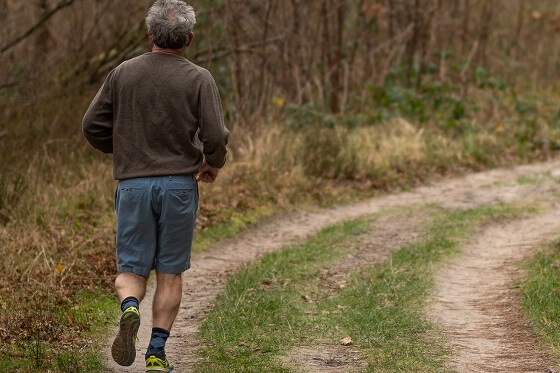

As we get older, it can sometimes be a challenge to keep fit. Our bodies don’t work quite the way they used to, and health problems can get in the way. However, the NHS advises that adults aged 65 or over do at least 75 minutes of exercise a week. Exercises that improve strength, balance, and flexibility are especially important. With this advice in mind, these activities are examples of easy exercise for elderly people.
First, though, let’s go over the benefits of regular exercise.
Exercise is ideal for burning fat and building muscle mass. In later life, our muscles deteriorate at a higher rate. Keeping active can slow this down and reduces the risk of certain health conditions. The more fit and active you are, the lower your risk of heart disease, stroke, diabetes, and dementia. Some cancers, too, can be deterred with regular exercise.
The fitter you are, the longer you are likely to live. It is also great for maintaining your independence. Moreover, it will make it easier for you to keep up with the grandkids and engage in fun leisure activities.
The extent of exercise you can do depends on your fitness levels and mobility. It won’t do you any good to start running regularly if you struggle to move around your home. Before trying any exercises, it may be worth consulting with a doctor. They will be able to offer suggestions for exercises specific to you, as well as identify where you may struggle more. Some exercises may exacerbate rather than aid pre-existing health conditions; your GP will be able to advise you in this regard.
Light activity is anything that involves movement rather than sitting or lying down. If you spend most of your day in bed or in front of the TV, it is worth trying to get up more often to keep your body functioning normally.
How many of the following activities do you already do?
These all count as light activity and are ideal for keeping your body moving.
Easy exercise for elderly people tends to come under the banner of moderate activity. This is, generally, any form of exercise that raises your heart rate, makes you breathe faster, and warms your body.
Some exercises can be performed at home, whilst others may require that you attend classes. It is important to know your limits and take breaks to ensure you are not pushing yourself too hard. In some cases, you may want to work up to more conventional exercise by attempting chair-based workouts first. These are ideal for building up your strength.
The following are forms of easy exercise for elderly people:
You will likely find that your local leisure centre has classes for the elderly, too, such as yoga. These are great opportunities for keeping fit as well as socialising, which can help ward off depression and loneliness.
In later life, we can sometimes need extra help around the house. Or we may just need the reassurance of knowing someone is nearby if we have an accident. Choosing to receive homecare from Abing means you will be receiving professional support in the home.
Our carers can help with day-to-day chores at home or accompany you to health appointments and fitness classes. Your care package is tailored to your needs, with your carer visiting at a time that is good for you.
We offer two main services: domiciliary and live-in care.
Domiciliary carers visit your property at pre-arranged times to provide support with household tasks and your wellbeing. They can visit as many or as few times as you need them, from multiple times a day to once a week or less.
A live-in carer moves into your property, providing 24/7 support. They can provide more specialised care depending on your needs, and their constant presence means you will always be in safe hands.
When you choose Abing you also receive a personal alarm, providing extra peace of mind.
To find out more about our services, check out our FAQs and Help Hub. You can also get in touch with us if you have any questions. Our team are always willing to help. Send us a message using our simple form, or call us on 0800 008 7000.